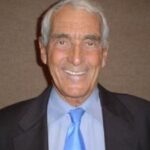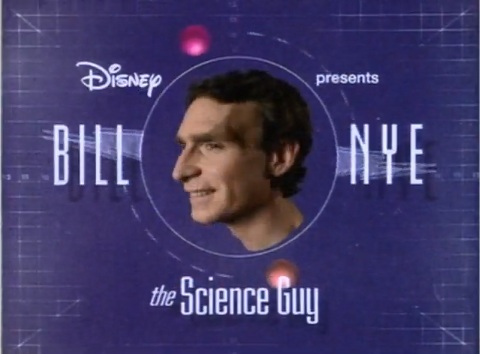Review of Unstoppable: Harnessing Science to Save the World, Bill Nye (St. Martin’s Press, November 2015), 350 pp., ISBN-10: 1250007143, ISBN-13: 978-1250007148; $18.38.
I knew I was being asked to make a great sacrifice of time and emotion to read Bill Nye’s Unstoppable: Harnessing Science to Save the World, which I was sure would be a painful experience; it was even worse than I imagined.
It appears Nye truly does understand science and engineering, but like Luke Skywalker’s infamous father, Darth Vader, Nye has embraced the “dark side.”
Nye is a Cornell engineering graduate who had a successful television show, Bill Nye the Science Guy, and is now CEO of The Planetary Society, a non-profit organization that lobbies the government to fund space efforts, primarily trips to Mars.
Nye is convinced government-financed climate models are correct and that humans’ contribution to the atmosphere’s carbon-dioxide levels is going to fatally warm the planet, raise sea levels, and destroy crops. A better title for the book would have been Unsupportable.
Nye skewers anyone who denies humans are causing catastrophic climate change, saying they are in need of psychiatric counseling. The book’s title, Unstoppable, stems from his belief, “Burning coal (and natural gas and petroleum) has unwittingly caused us to change the climate of our world and set in motion feedback loops that are going to be very, very difficult to tamp down.”
Proposes to Restrict Freedom
To prevent disaster, Nye proposes myriad scary plans to restrict businesses and people’s personal lives to end our use of all fossil fuels. Nye writes we can run the planet on wind and solar energy, driving only electric cars powered by wind and solar farms. Older readers may remember a cartoonist by the name of Rube Goldberg who invented the most complicated machines to achieve the simplest feats. I believe Nye’s convoluted ideas for solving the world’s energy problems and climate change were likely influenced by Goldberg.
Nye shares his enthusiasm for NASCAR in a chapter focusing on professional racing’s use of ethanol for fuel. Nye argues ethanol could be a bridge fuel used to replace gasoline until better automotive fuels are discovered, but he could not be more wrong. Ethanol is an expensive, environmentally damaging niche fuel that would not be used by people today without current government mandates.
Understands Physics, Not Biology
If you could eliminate the chapters dedicated to his nutty ideas of defeating global warming and the hundreds of sentences sprinkled throughout the book about climate change, Nye’s book is a reasonable science book for middle schoolers, explaining topics in physics and chemistry, such as how the electric grid works and how a large meteor ended the age of the dinosaurs.
Nye displays spotty understanding of the topics covered in chapters not devoted to discussing climate change. Nye’s discussions of nuclear power, how photovoltaic cells work, and what reverse osmosis is all about are interesting and informative, but Nye completely misunderstands how hydraulic fracturing works, and he neglects the well-established benefits of fracking. While Nye does offer an accurate description of basic thermodynamics, he, unfortunately, shows an almost total ignorance of biology and the fact plants require carbon dioxide to live and thrive.
To be fair, Nye honestly admits most of the policies and technologies he promotes to prevent dangerous climate change are not economically viable, and he torpedoes some of the most outlandish ideas proposed to fight global warming.
Additionally, Nye did teach me something of potential value: A quantum is the smallest amount of energy there is, so when someone says something is a “quantum leap,” intending to indicate the idea is a giant step forward, they are actually conveying the wrong message entirely; a “quantum leap” is actually a miniscule change.
It is unfortunate Nye wrote this book, because he seemingly has a substantial following among a large segment of the U.S. population who may uncritically accept his statements concerning global warming and embrace his crazy quilt of ideas to prevent it.
I do not suggest any of my readers pick up a copy of this book, but there is an important lesson we can all learn from it: The publication of Nye’s book is evidence those of us devoted to science and the pursuit of the truth have to work even harder to dissuade reasonable people of the belief humans control the climate.
Jay Lehr, Ph.D. ([email protected]) is science director of The Heartland Institute.





